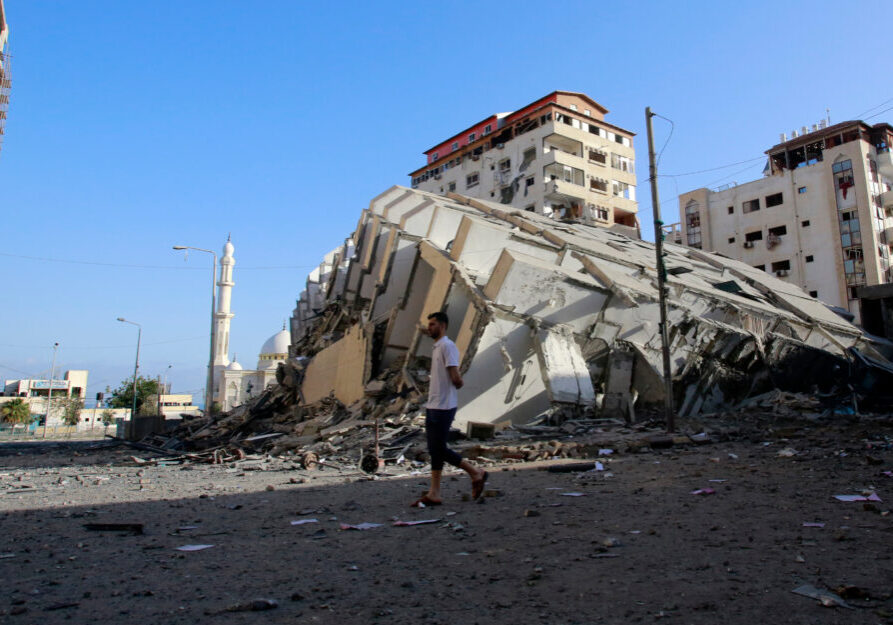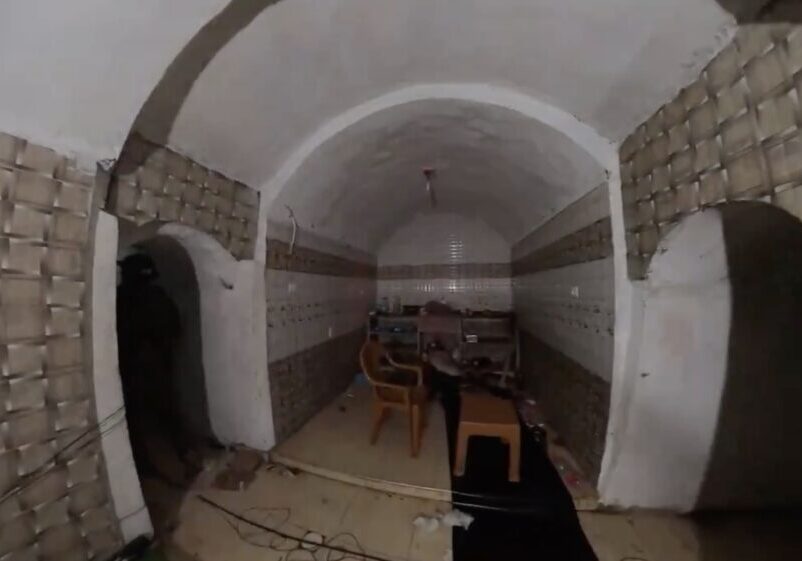Australia/Israel Review
Looking through Rosen-Coloured Glasses
Oct 1, 2007 | Aviva Bard
By Aviva Bard
 |
| Rabbi Rosen (seated second from right) at the Interfaith Summit in India, February 2007 |
‘If you keep religion out of it, extremists will take over,’ was the message from Rabbi David Rosen, International President of the World Conference for Religions and Peace.
If there’s anyone who understands the importance religion plays in the path to making peace, it’s Rabbi Rosen, one of the world’s major players in interfaith dialogue. Sitting at the head of numerous global roof-bodies, he is Chair of the International Jewish Committee on Inter-religious Consultations (IJCIC) – the committee that represents World Jewry in its relations with other world religions, and is the Director of the Heilbrunn Institute for International Inter-religious Understanding of the American Jewish Committee (AJC), among numerous other titles.
During a recent stopover in Sydney, Rabbi Rosen discussed the significance of a groundbreaking visit of eight Muslims leaders from India to Israel in August, conducted with the aim of advancing interfaith dialogue and peace. He explained that the visit, organised by the AJC’s Project Interchange and AIJAC’s Rambam Program, did not take place without repercussions.
“These were extremely courageous individuals,” said Rabbi Rosen, a member of the Executive Committee of the World Congress of Imams and Rabbis. “There were protests, even riots, against them coming to Israel. The event was really very exciting. Maybe it is an historic breakthrough to be able to preach and teach a different reality, and I hope this is the beginning of an ongoing process of broadening interfaith impact.”
Among the Muslim delegates was Moulana Ilyasi, the head of the All India Council, which represents more than half a million imams and 150 million Muslims, the world’s second largest Muslim population. He came with a declaration condemning suicide bombing.
The delegation met with Israel’s President Shimon Peres, Minister of Foreign Affairs Tzipi Livni, and with Jewish and Muslim religious leaders. They also participated in an inter-religious dialogue with a delegation from the office of the Chief Rabbinate of Israel and later formally signed a joint declaration with Israel’s Chief Rabbis condemning incitement. The trip also included a visit to the Palestinian Authority, and to the long-suffering Israeli town of Sderot.
“It was a very powerful declaration,” said Rabbi Rosen, who stressed the importance of rediscovering the “historic relationship” between Judaism and Islam.
“You need to reach out,” he added. “I am amazed in the Muslim world just how far a little goodwill goes. It’s amazing how you can melt attitudes by showing respect. It also shows the need for a widespread education campaign.”
Arguing that religion was a way of overcoming political divisions, Rabbi Rosen said that historically, “Muslims never demonised Jews the way Christians did. The Jewish experience under Islam was better than under Christianity… The relationship at present is to a certain extent a victim of political circumstances.”
Rabbi Rosen further added that “no religion is an island,” which certainly rings true of Israel both demographically and geographically. This is probably the reason why “there is a remarkable amount of interfaith activity in the Holy Land,” as he explained.
“It is a testament to these efforts that we can live in mutual respect,” he said, mindful of the fact, however, that it also acts in preparation of the potential crisis of the “morning after.”
“It will come sooner or later. I have no doubt that it will come,” he said.
When it came to interfaith relations within the West Bank and Gaza, Rabbi Rosen said the situation was “more complicated”, with “dialogue at best a luxury”. He said that the ability for the sides to trust each other had undergone many challenges over the past six years, and that not only was a “marriage counsellor” needed, but that it was “crucial” for America to play that role and remain engaged. “The problem above all is that extremists are allowed to dictate the tune,” he said.
Named a Papal Knight Commander of the Order of St. Gregory the Great for his contribution to promoting Catholic-Jewish reconciliation, Rabbi Rosen argues that relations have improved between the two religions for a number of reasons, most notably the Holocaust, but also as a result of the loss of political power. “Religion is always healthier in a free market situation,” he said. “Religion is healthier than when it has any coercive structure behind it.”
Despite his observation that many people were still uncomfortable with the idea of interfaith activity, he commented that the movement was nevertheless an “exponentially growing industry”.
“If you don’t want to be discriminated against, or people to be prejudiced against you, then you’ve got to make yourself known, and in that process you get to know others,” and that includes the “recognition of shared values,” Rabbi Rosen said.
“If you share values in pursuance of peace, if you really are committed, then you will seek to work together with others who share those values.”
![]()
Tags: Europe






